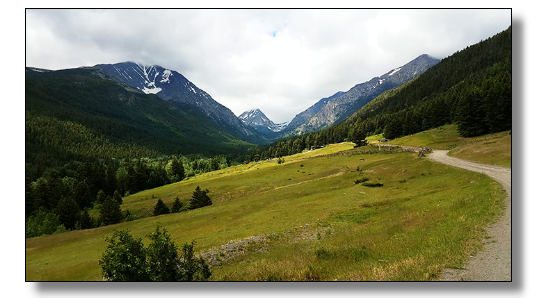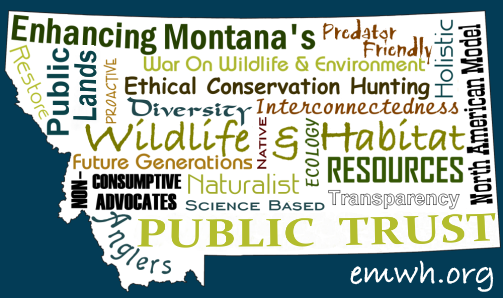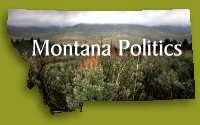Attending:
John Prinkki, Carbon
County Commissioner (Chairman)
Richard Stem, retired Forest Service, consultant
Jim Hart, Madison
County Commissioner, Vice-Chair
Sidney Fitzpatrick, Bighorn County Commissioner
Earl Atwood, Beartooth
RC & D office
Erik Nylund, Sen.Testers Reg. Dir & Natural
Resource Liason
Jennifer Madgic, Sen. Tester, running for Gall.
Co. Comm.
Joe Josephson, Greater Yellowstone Coalition
Alex Sienkiewicz, Gallatin National Forest
John Bodney, Stillwater Mining Company
Robin Hoover, Yellowstone
Country (tourism)
Bill Wallace, Sweetgrass County Commissioner
Mary Erickson, Supervisor Gallatin National Forest
Barb Cestero, Greater Yellowstone Coalition
Jerry Furtney, RY Timber
Mike Penfold, Our
Montana
Marty Malone, Park County Commissioner
Steve White, Gallatin County Commissioner
Pierre Martineau, Gallatin County Commissioner
Joe Skinner, Gallatin County Commissioner
Dan Clark, Director MSU Local Government Center
Bob Allen, Montana Mountain Bike Alliance
Alex Nixon, Carbon County Attorney
Kathryn QannaYahu, public, EMWH
|
Audio  MP3
MP3
Notes:
Introductions, explanation of formation
of working group between Mandison, Gallatin, Park, Sweetgrass, Stillwater
and Carbon counties, hoping to add Bighorn. Mission is to assist
forest service in getting boots on the ground, and projects accomplished,
maintain, preserve and restore forest health.
Stated
it was their 5th meeting. They dont want to sit around for 2 years
talking about projects, they want to get projects on the ground.
Effective collaborative that sets goals and meets those goals -
members of collaborative to help meet those goals.
Round Table (counter clockwise) explaining
what the participants are hoping to see.
Bob Allen spoke of trail development, quality over
quantity, multiple use; Dan Clark, hanging out
to see if there would be a need for his services, support; Joe
Skinner spoke about being hamstrung by lawsuits; Pierre
Martineau agreed with Skinner, solution oriented; Steve
White spoke to health and safety, healthy forest, watershed,
renweable resource, addressed beetle kill and dealing with management;
Marty Malone spoke about timber far away being
brought in to keep mill people employed, fires, restoration, soil
conservation, wise use of timber; Mike Penfold
addressed timber, set a better stage without roadblocks; Jerry
Furtney discussed mills and companies disappearing, set
up railyards to bring timber in from Wyoming, steady stream of products;
Barb Cestero explained GYC, trying to figure out
scope and purpose, what role GYC might play in this collaborative;
Mary Erickson wanted Forest Service to speak last;
Bill Wallace wanted weight behind FS, why burn
when there could be use of it, wanted the Fed to help; Robin
Hoover addressed that tourism plays a big part in Montana,
geo tourism; John Bodney sponke on the Stillwater
Mining Co, work collaboratively, culture of conflict, fuel reduction,
concerns; Joe Josephson brought up not only the
GYC but their part in the Gallatin Community Collaborative how it
might intersect; Jennifer Madgic said the Senator
appreciates collaborative efforts, spoke of learning about various
FS projects;
I was concerned by Nylunds statement,
so I have transcribed most of it for you. The reason there is so
much litigation is because MEPA and NEPA are not being followed,
but bypassed. Land management needs to be based on a number of things,
most especially the science, not just special interests of a group
of people. 31:30 - Erik Nylund, "Senator Tester
is a big fan of collaboratives. The best ideas are going to come
from the ground in Montana, they are not going to come from Washington
DC with mandates and things like that. That's where a lot of things
with FS or any other agency for that matter, go awry. We have some
very well functioning collaboratives in Montana that have done some
great things...You guys can really do a lot here, bring some people
in, hopefully avoid some of the litigation. I think you said it
best, put your collective weight behind it, those are the sort of
things that a federal judge is going to notice when you guys come
to an agreement, FS part of it, pretty diverse crowd, and one or
two people sitting on the other side of the courtroom. That's the
future of land management. And the tourism issue, 6 billion dollars
alone, Montana's economy, public lands generate. That's not counting
the grazing, the timber, the mining. These public lands are defintely
some of our most important treasures. So your work here is very
important work for the whole states economy."
Earl Atwood spoke to
more clear identification of issues, organization to assist FS,
stave off landmines of the past; Sidney Fitzpatrick
addressed the Native American perspective and contribution, a liaison
between BIA and tribes; Jim Hart expressed concern
by multi use, Big Sky economic driver, recreational, safety, cant
have fire, find specific spots and move it fast; Richard
Stem discussed multiple use, smart use, dealt with NEPA
and litigation; John Prinkki wanted good representation.
They asked what I was there for, I explained I was a conservation
hunter, a member of the public, dealt with Public Trust issues,
scientific wildlife management that was the focus of EMWH. Prinkki
asked if I would be interested in participating.
Prinkki explained interest in multi stakeholder participation, stated
that working with Bree Dugan from Sen. Walsh's office they came
up with a good list of participants, most of which had been invited.
They want the working group to have good standing, good forest managment
practices, healthy forest.
Break, then a discussion of stakeholders,
the issues such as watershed, road issues.
Richard Stem gave a short presentation
of 3 points:
1. Collaborative -
2. Capacity - dollars & resources
3. Clarity of process - NEPA, tools of the toolbox, rules, policy,
litigation strategy
To have any legitimacy - broad base of stakeholders
Prinkki spoke to the long term aspect
of the collaborative, self sustaining, that forest management would
be ongoing, longeivity of the group depends on small issue, success,
then go forward. Next meeting was tentatively set for Sept. 10th,
in Bozeman, same location.
|




